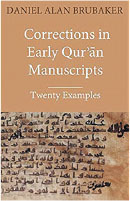New scholarship deflates Islamic claims about the Qur’an

Most traditional Muslims make very weighty claims about the Qur’an, the sacred scripture of Islam.
- The Qur’an is the revelation from God in Arabic that is a totally infallible duplication (at least in part) of a heavenly Qur’an (see 85:22).
- The Qur’an was dictated by the angel Gabriel to Muhammad from the year 610 until the prophet’s death in 632.
- The 114 chapters of the Qur’an have not been changed throughout history as the revelations were carefully collected and preserved by early Muslim leaders.
As one Islamic site puts it, "Whoever claims that there is the least addition or deletion in the Noble Qur’an would be denying what Allah The Almighty stated, and whoever does so would put himself beyond the pale of Islam."
Mohammad al-Nadvi, one of Canada’s leading Muslim scholars, told me in an interview last year that it was impossible for the traditional view to be wrong.
Despite this Muslim confidence, research proves that the Qur’an (similar in size to the New Testament) has not been preserved without errors through the centuries. This point has been demonstrated by Dan Brubaker in his scholarly study Corrections in Early Qur’ān Manuscripts (Think and Tell, 2019).
Here is what is clear about the Qur’an, based on Brubaker’s research and the work of other scholars such as Francois Déroche, Elisabeth and Gerd Puin, Alba Fedeli, Asma Hilali, Andrew Rippin and Keith Small.
Brubaker has examined more than 10,000 pages of various Qur'an manuscriptions.
- The earliest manuscripts we have of the Qur’an do not completely agree with one another on every word or letter.
- The compilers of the earliest manuscripts sometimes erased, replaced, added and covered over words. (Brubaker’s focus is about changes in the earliest consonantal text before vowels were added in later copies of the Qur’an.)
Brubaker has been studying corrections in Qur’an manuscripts for over a decade. His research has taken him to libraries, museums and private collections all over the world, from the Middle East to Central Asia, from North America to western Europe and Russia. He has examined more than 10,000 pages of various Qur’an manuscripts.
Here are five things worth knowing about Brubaker’s work, the Qur’an and Islam.
Does his research disprove the Qur’an in general? No. He simply shows what common sense would expect of any ancient manuscript, sacred or otherwise. Copyists make mistakes in recording and transmitting the letters, words and sentences in any document, whether the Bible, or the Qur’an or some other book. Brubaker documents, for example, that the word Allah (Arabic for God) is left out of several verses in chapter 33 of one early manuscript (known as Marcel 11) of the Qur’an.
Are Muslims upset about Brubaker’s research? Most Muslims do not know about it. Of those who know, a few investigate (Shabir Ally, for example), many dismiss it outright while some respond in hate. Jay Smith, a veteran missionary to Islam, and Al Fadi, a convert to Christian faith from Islam, received death threats for their dissemination of Brubaker’s evidence. (You can see their videos about Brubaker’s work and an interview with him on Smith’s Pfander Films YouTube site.)
Do you have to read the Qur’an in Arabic to understand it? No. Scholars like Arthur Droge have done excellent English versions. See his The Qur’- an: A New Annotated Translation (Equinox, 2013). Of course, even with a good translation, the Qur’an is a very difficult read. For help, turn to Gordon Nickel, a Canadian missionary and scholar on Islam, for his recently completed The Quran with Christian Commentary (Zondervan, 2020).
What are three important things Christians should know about the Qur’an? (1) Surprisingly, the Qur’an (of unknown authorship) does not say a lot about Muhammad. He is mentioned by name only four times. Most of the Islamic view about him comes from later documents. (2) The level of deference in the Islamic world for the Qur’an is huge. It’s not unusual for Muslims to memorize all 6,000+ verses. (3) Though the Qur’an treats Jesus with respect as a prophet and teacher, it distorts biblical teaching on many subjects, the most serious being the denial of Jesus’ crucifixion and deity.
Does Brubaker’s research impact Christian witness to Muslims? Yes. Brubaker’s work can be used to open awareness that Muslim tradition is sometimes wrong. This can create a context for Christian testimony, presented in love, that the gospel of Jesus Christ, not the Qur’an, offers the ultimate truth about God, Jesus and the way of salvation.